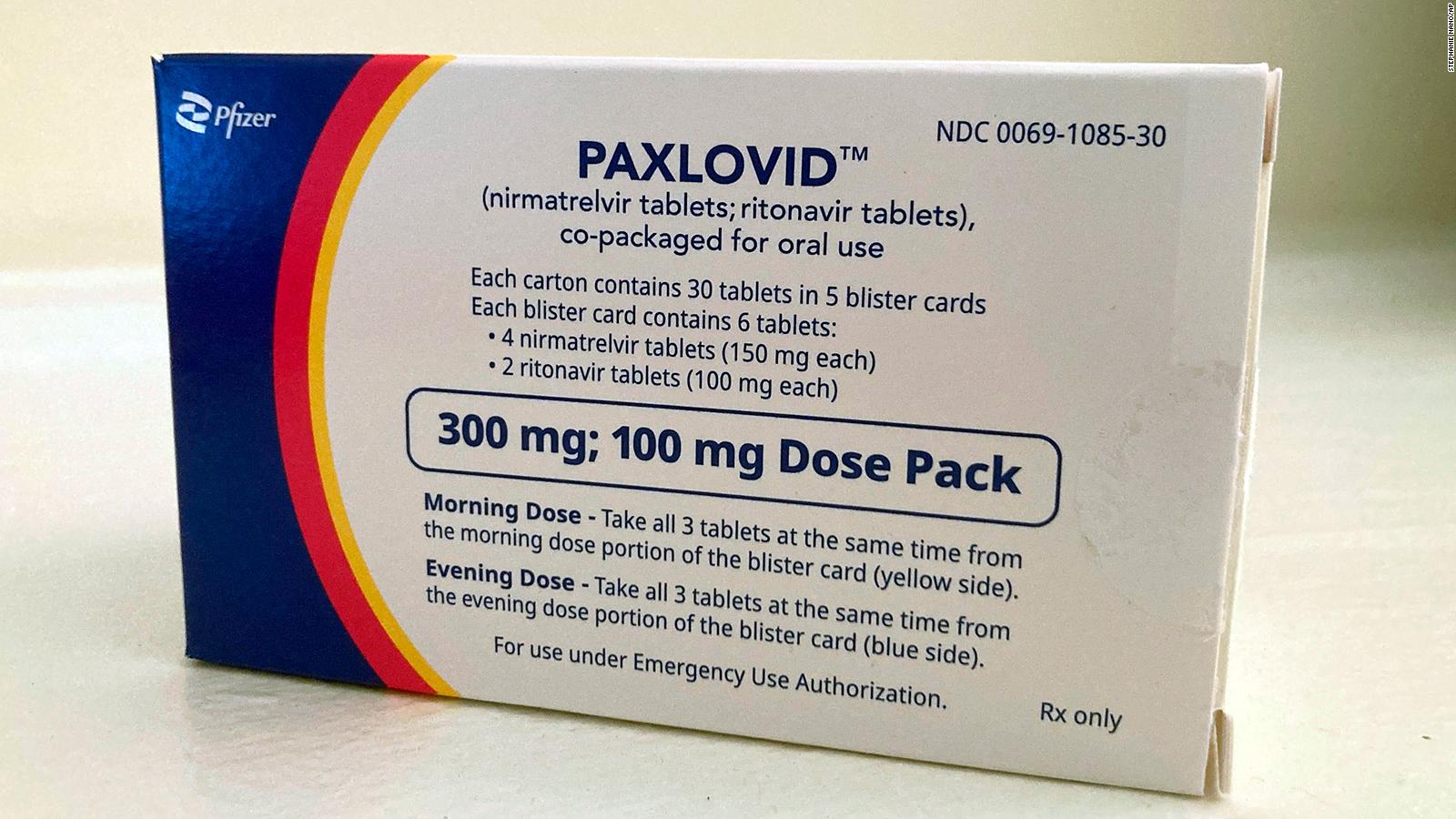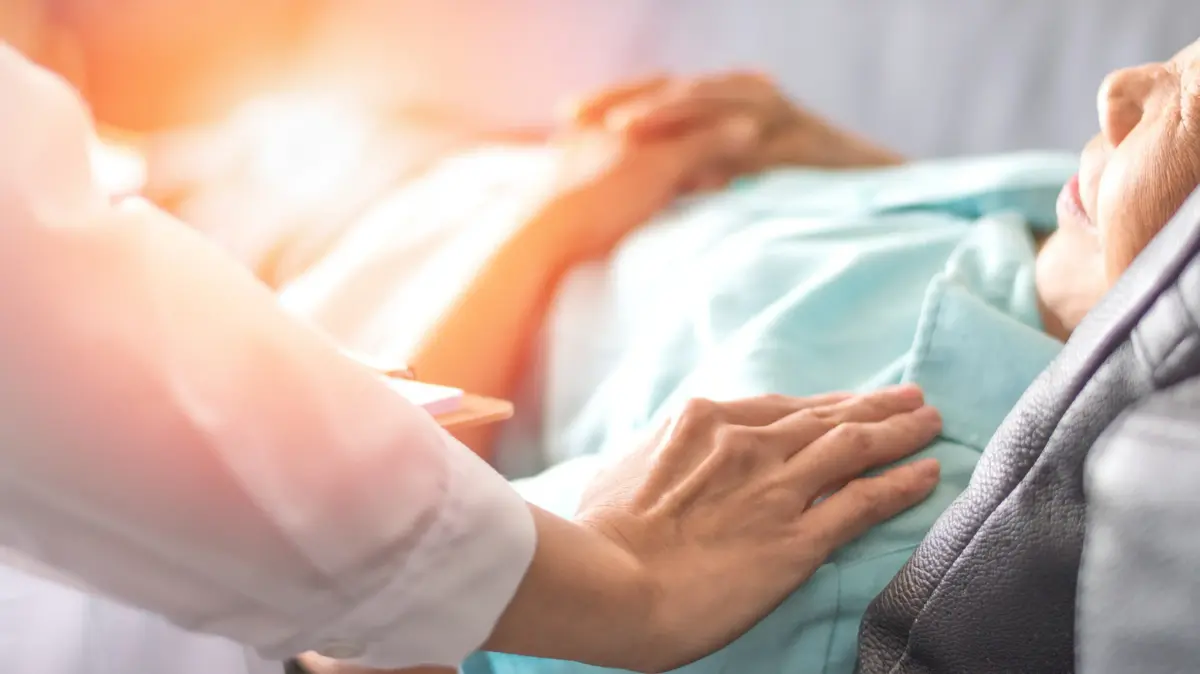Use of Paxlovid against covid-19 would cause expansion of the virus 1:59
(CNN) --
After being diagnosed with COVID-19 last month, President Joe Biden recently tested negative for the coronavirus, only to test positive again a few days later.
Biden had taken the antiviral drug Paxlovid, which has been linked to some patients retesting positive for the virus after completing treatment.
This phenomenon is known as Paxlovid rebound.
What exactly is it and why does it happen?
How common is it?
And does the possibility of symptoms returning mean people shouldn't take it?
Who should and should not take the medicine?
And what to do if a bounce occurs?
To guide us through all of these questions, we spoke with Dr. Leana Wen, CNN Medical Analyst, ER Physician, and Professor of Health Policy and Management at George Washington University's Milken Institute School of Public Health.
She is also the author of "Lifelines: A Doctor's Journey in the Fight for Public Health."
CNN: What is Paxlovid rebound and why does it happen?
Dr. Leana Wen:
The phenomenon known as Paxlovid rebound is what happens when someone with COVID-19 takes the antiviral pill Paxlovid and starts to recover: their symptoms improve and they start testing negative.
Then, usually within two weeks of their initial diagnosis, they have a return of symptoms and test positive for the coronavirus again.
In the case of President Joe Biden, he was being tested regularly, so even though his symptoms did not reappear, his positive test was detected immediately.
It is not known exactly why this occurs.
A small study from the University of California, San Diego found that this is not because Paxlovid is ineffective against the variants.
The short time interval in which it occurs also suggests that it is not due to reinfection.
Rather, many scientists, myself included, think this is most likely because Paxlovid works as it should, but not for long enough.
advertising
Paxlovid works to stop the virus from replicating.
It is currently administered for five days.
It may work during the five day period, but some people still have the virus in their body after five days.
When Paxlovid is stopped, the virus starts replicating again.
Paxlovid may need to be given for a longer period, perhaps seven or ten days instead of five.
Those studies are ongoing.
CNN: It seems like a lot of people are rebounding from Paxlovid, including President Biden and Dr. Anthony Fauci. How common is it?
Wen:
Anecdotally, we may know of a lot of people who have had it, but studies show that it is quite rare.
Initial studies found that rebound occurred in about 2% of cases.
By the way, those who did not take Paxlovid also had chances of a rebound.
In that study, the placebo group had a recurrence of symptoms in 1.5% of cases.
Those studies were done during a time when the delta variant was dominant.
Bounce rates can be higher with the omicron variant.
A large study of more than 13,000 patients by researchers at the National Institutes of Health (NIH) found a rebound rate of about 6%.
Note that this study is available online but has not yet been peer-reviewed.
Of course, the actual rate may be higher, since people do not undergo routine testing after taking Paxlovid.
Therefore, some cases may not be detected.
However, it still appears that Paxlovid rebound occurs in a minority, not the majority of cases.
When will vaccines be available against new omicron subvariants like BA.5?
CNN: Does the possibility of a return of symptoms mean that people should not take it?
Wen:
No. I think people should consider the possibility of Paxlovid rebound as a known side effect of the medication.
Of course, it is not preferable that it occurs, given the inconvenience of recurring symptoms and having to be isolated again.
However, the possibility of this side effect is not a reason to avoid a drug that is very effective in reducing severe disease.
This boils down to the reason Paxlovid is given in the first place.
It's an oral drug, prescribed for people to take at home, that can reduce the chance of being hospitalized or dying by almost 90%.
Neither Fauci nor Biden became seriously ill.
That's the success story here, and why people eligible for Paxlovid should keep taking it despite the possibility of rebound.
CNN: Who is eligible for Paxlovid? Are there people who shouldn't take it?
Wen:
Paxlovid-eligible people are individuals who are vulnerable to severe outcomes if they contract covid-19.
The US Centers for Disease Control and Prevention (CDC) has a list of these conditions.
These include advanced age and underlying chronic medical problems, such as heart disease, lung disease, diabetes, and obesity.
People who remain unvaccinated are also at higher risk of severe COVID-19.
There are certain medical conditions that may prevent people from taking Paxlovid, or require them to take a different dose.
Some medications also interfere with Paxlovid and may need to be stopped for a short time.
That is why it is essential that you consult with your doctor.
I encourage you to consult with your doctor, even if you have not contracted covid-19, to see if you can take Paxlovid.
As for people who should not take it, Paxlovid is intended for people who are at high risk of serious illness.
If you're under 50, up to date on your vaccinations, and generally healthy, you shouldn't take it.
In any medication you have to weigh the risks and benefits.
If you are unlikely to benefit, the risks will outweigh the benefits.
CNN: What should you do if you have a rebound? Do you go back on Paxlovid and go into isolation?
Wen:
It is very unlikely that a rebound of Paxlovid will progress to serious illness, according to a recent CDC report.
Taking Paxlovid is not currently recommended for rebound cases, although this is a recommendation that may change as more studies are conducted.
(Fauci's doctors prescribed another set of Paxlovid.)
The CDC says that people with rebound infections should isolate for another five days.
This is because a person who tests positive on the rapid home antigen test again is shedding the virus and could continue to infect other people.
Precaution is the right approach, but I want to stress again that the possibility of rebound should not deter people from taking a treatment that is doing what it is supposed to do, which is to keep people out of hospital and prevent them from getting seriously ill. .
Covid-19Paxlovid














